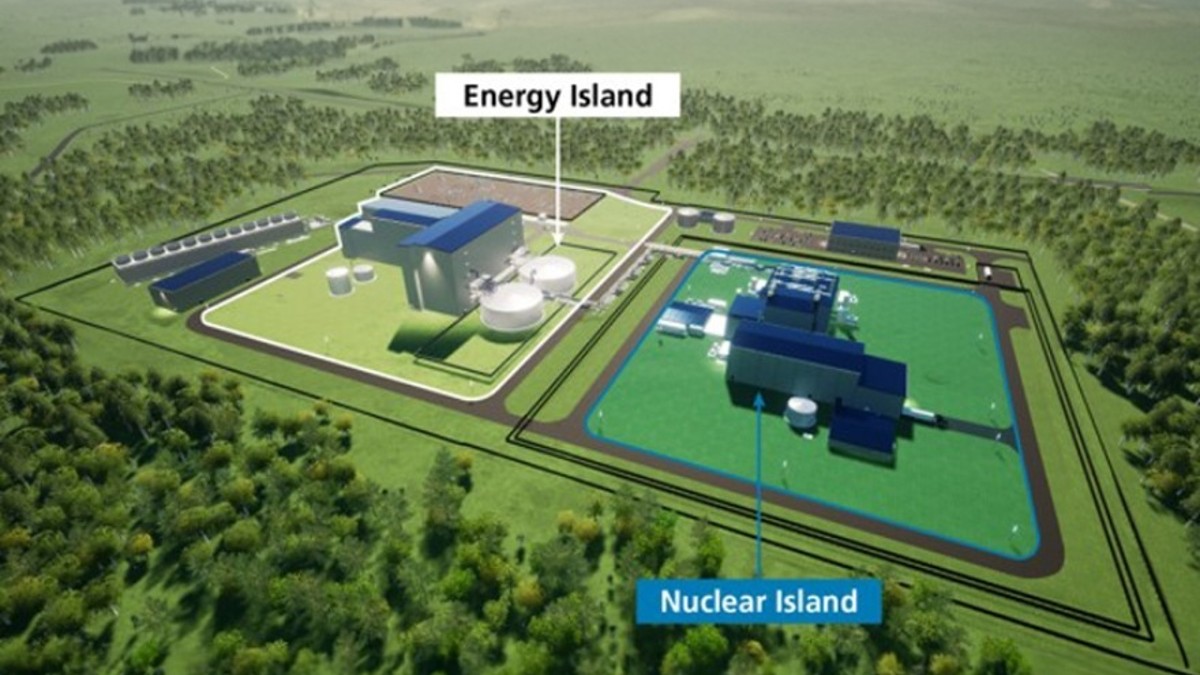
Bill Gates’ TerraPower broke ground yesterday on its Natrium nuclear reactor plant, making it the first advanced reactor project ever to start construction.
Once it comes online, the Natrium demonstration plant in Kemmerer, Wyoming, will be a fully functioning commercial power plant. According to Gates, founder and chairman of TerraPower, Natrium will “be the most advanced nuclear facility in the world, and it will be much safer and produce far less waste than conventional reactors.”
It’s being constructed near the retiring coal-fired Naughton power plant and is the world’s only coal-to-nuclear project under development. TerraPower, which will employ between 200 and 250 people at the Natrium facility, wants to hire the 110 former coal workers to tap into their transferrable skills.
TerraPower’s nuclear plant is “potentially” expected to come online in 2030. TerraPower will first build the non-nuclear parts of the plant while the US Nuclear Regulatory Commission reviews TerraPower’s construction permit application, which it accepted last month.
Construction will begin in 2025 on the “energy island,” where the steam turbines and other machinery that generate power will be. Building Natrium will take several years and, at its peak, will create 1,600 construction jobs.
TerraPower is in a private-public partnership with the US Department of Energy on this project, as well as with power company PacifiCorp.
How the Natrium nuclear reactor plant works
The project features a 345 MW sodium-cooled fast reactor with a molten salt-based energy storage system. The storage technology can boost the system’s output to 500 MW of power when needed, which is equivalent to the energy required to power around 400,000 homes. The energy storage capability allows the plant to integrate seamlessly with renewable resources and is the only advanced reactor design with this feature.
Gates explained why the Natrium demonstration plant is far safer than any existing nuclear plant yesterday in his blog:
The Natrium plant uses liquid sodium, whose boiling point is more than 8 times higher than water’s, so it can absorb all the extra heat generated in the nuclear core. Unlike water, the sodium doesn’t need to be pumped, because as it gets hot, it rises, and as it rises, it cools off. Even if the plant loses power, the sodium just keeps absorbing heat without getting to a dangerous temperature that would cause a meltdown.
Gates says that Natrium also includes an energy storage system that will allow it to control how much electricity it produces, which is unique among nuclear reactors.
Check out this video to see exactly how the Natrium nuclear reactor plant works:
Top comment by Derek Ash
I support new nuclear projects in the US. My issue isn't the waste, that's minimal & can be dealt with. My issue is timeframe & cost. Typically have been VERY expensive & always takes way longer to build. But we definitely need to push this tech forward.
Read more: Should the US convert coal plant sites to nuclear? The DOE seems to think so
If you live in an area that has frequent natural disaster events, and are interested in making your home more resilient to power outages, consider going solar and adding a battery storage system. To make sure you find a trusted, reliable solar installer near you that offers competitive pricing, check out EnergySage, a free service that makes it easy for you to go solar. They have hundreds of pre-vetted solar installers competing for your business, ensuring you get high quality solutions and save 20-30% compared to going it alone. Plus, it’s free to use and you won’t get sales calls until you select an installer and share your phone number with them.
Your personalized solar quotes are easy to compare online and you’ll get access to unbiased Energy Advisers to help you every step of the way. Get started here. –affiliate link*
FTC: We use income earning auto affiliate links. More.





Comments